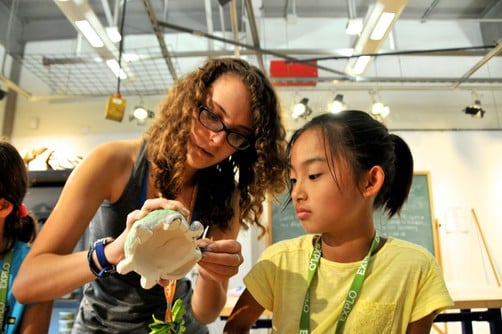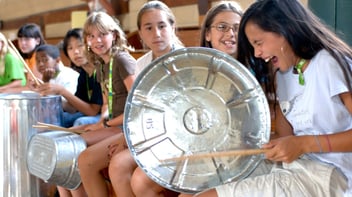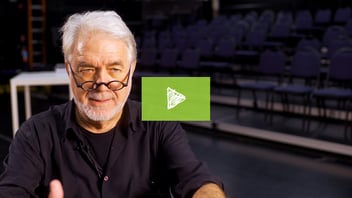Is Creativity Teachable? Absolutely.

Colleges and universities across the nation are making creativity a central focus of everything from academic disciplines to everyday problem solving and everything in between.
"Once considered the product of genius or divine inspiration, creativity — the ability to spot problems and devise smart solutions — is being recast as a prized and teachable skill." As Laura Pappano writes in an education piece for The New York Times, learning how to be creative is crossing disciplines and becoming a highly sought after skill both by college students and, eventually, the organizations and companies who will hire them. "Pin it on pushback against standardized tests and standardized thinking, or on the need for ingenuity in a fluid landscape," Pappano writes. Either way, creativity — and learning how to be creative — is on the rise.
"The reality," Gerard J. Puccio, chairman of the International Center for Studies in Creativity, says, "is that to survive in a fast-changing world you need to be creative." According to Puccio, critical thinking is not enough, unless it's pared with a creative, innovative mindset. And Buffalo State isn't the only university that sees creativity as an essential requirement to succeeding in college and beyond.
What Type of Creative Learner are You?
There are as many ways of being creative as there are people on Earth, but to get a broad-strokes idea of which way you might lean on the creative spectrum, check out this quick quiz compiled by FourSite, which "creates training tools to help individuals and teams solve problems."
Universities such as Saybrook University in San Francisco, Drexel University in Philadelphia, St. Andrews University in North Carolina, and Eastern Kentucky University are all adding majors, minors, or advanced degree programs in everything from applied creative thinking to creative studies, or incorporating creative studies into existing disciplines.
"Traditional academic disciplines still matter," writes Laura Pappano, "but as content knowledge evolves at lightning speed, educators are talking more and more about 'process skills,' strategies to reframe challenges and extrapolate and transform information, and to accept and deal with ambiguity."
With the benefit of being able to be applied to many different fields of study, from nursing and psychology to justice and design, students and colleges are discovering that in order to be marketable after graduation, you need to have the skills and the practice to be able to make those creative leaps happen.



